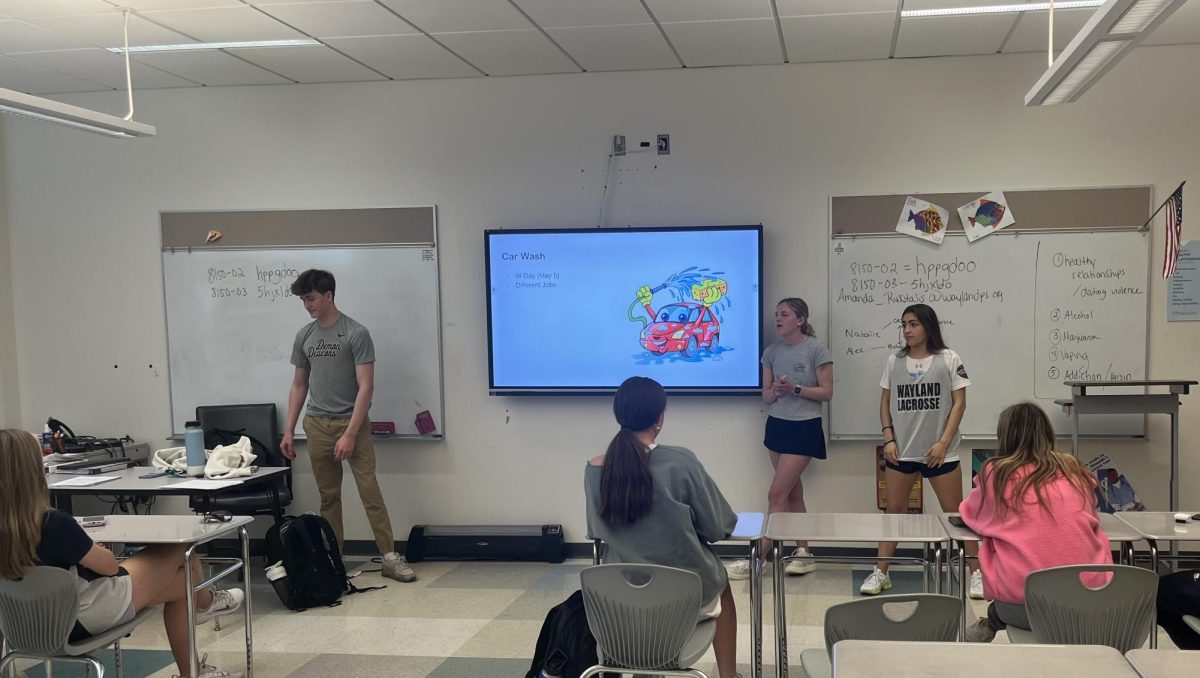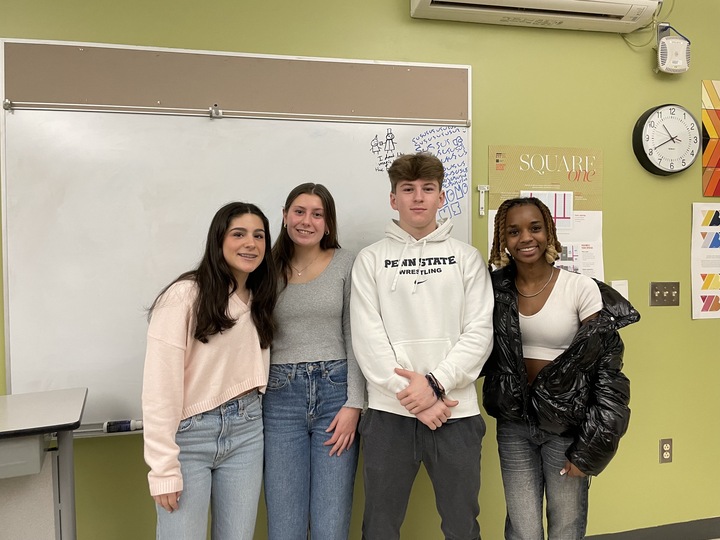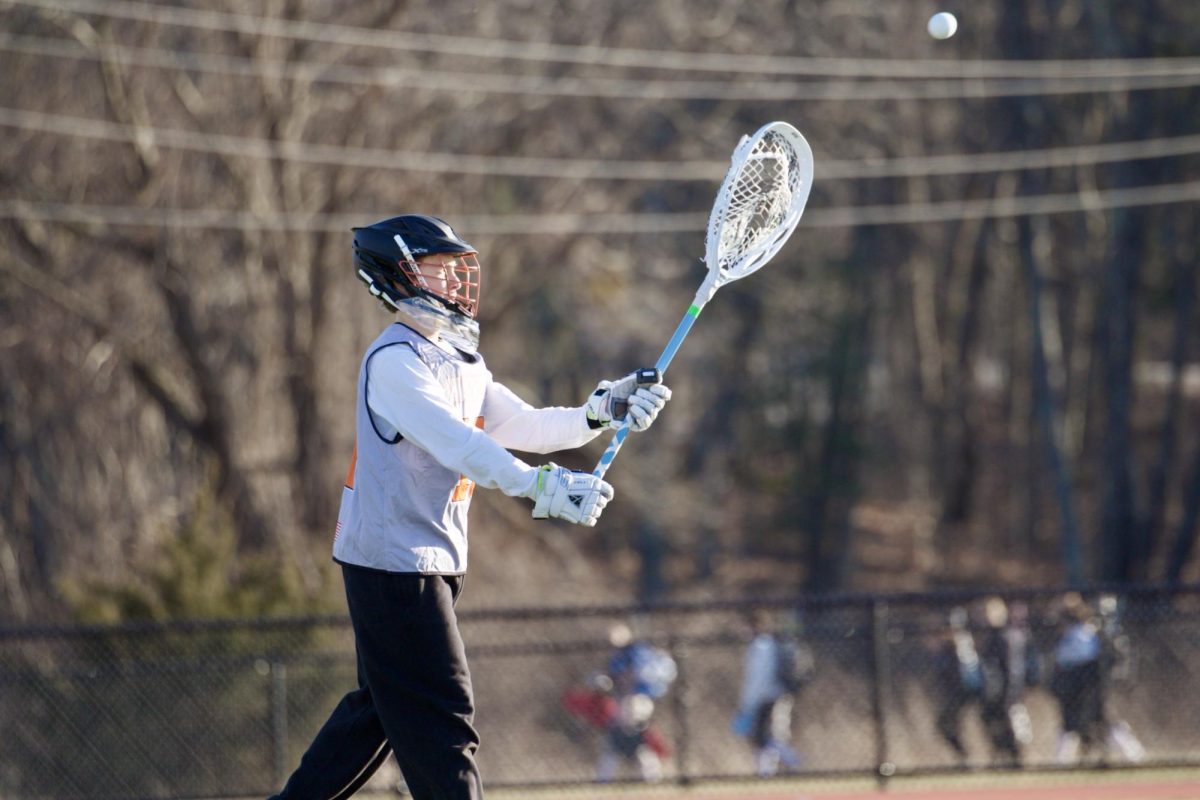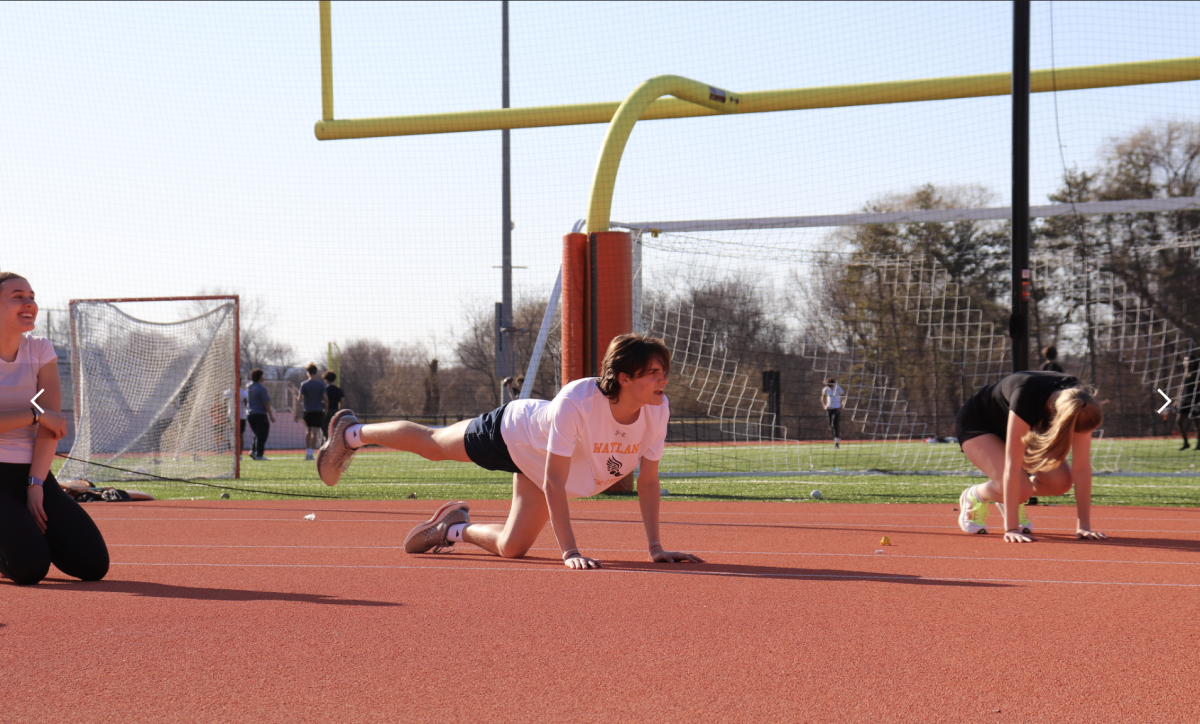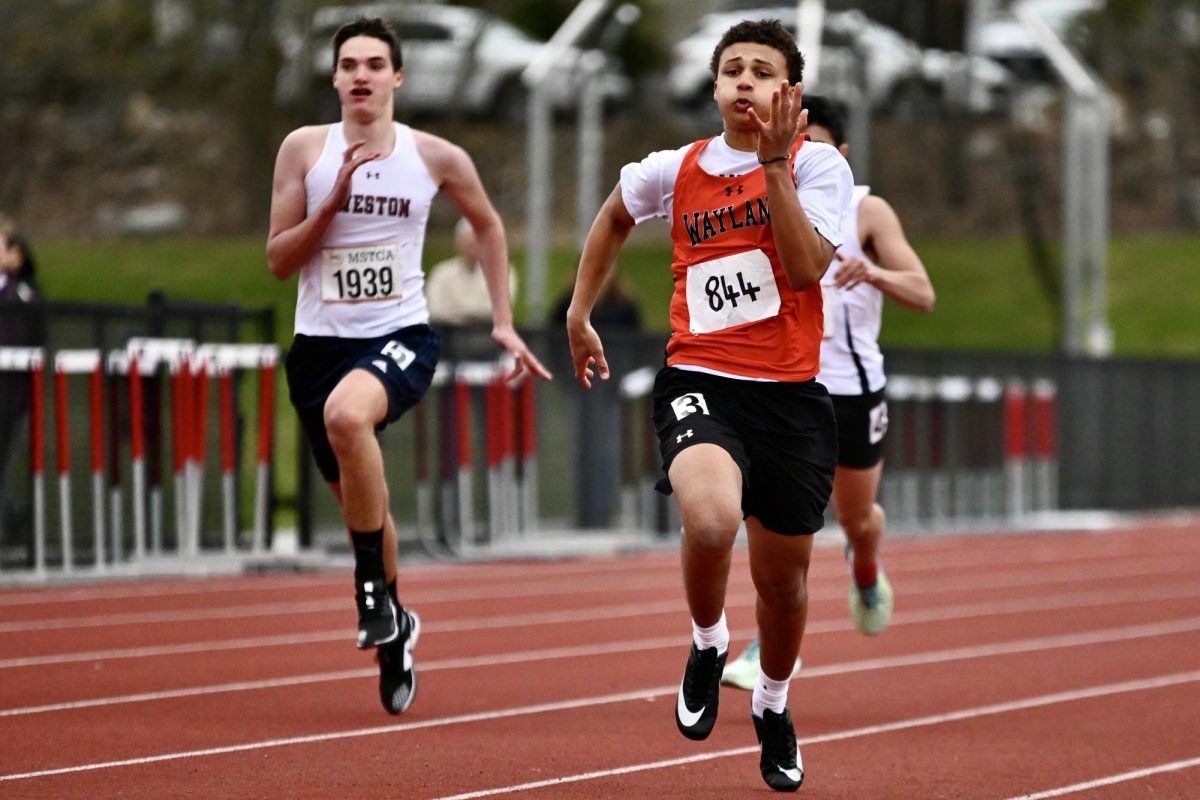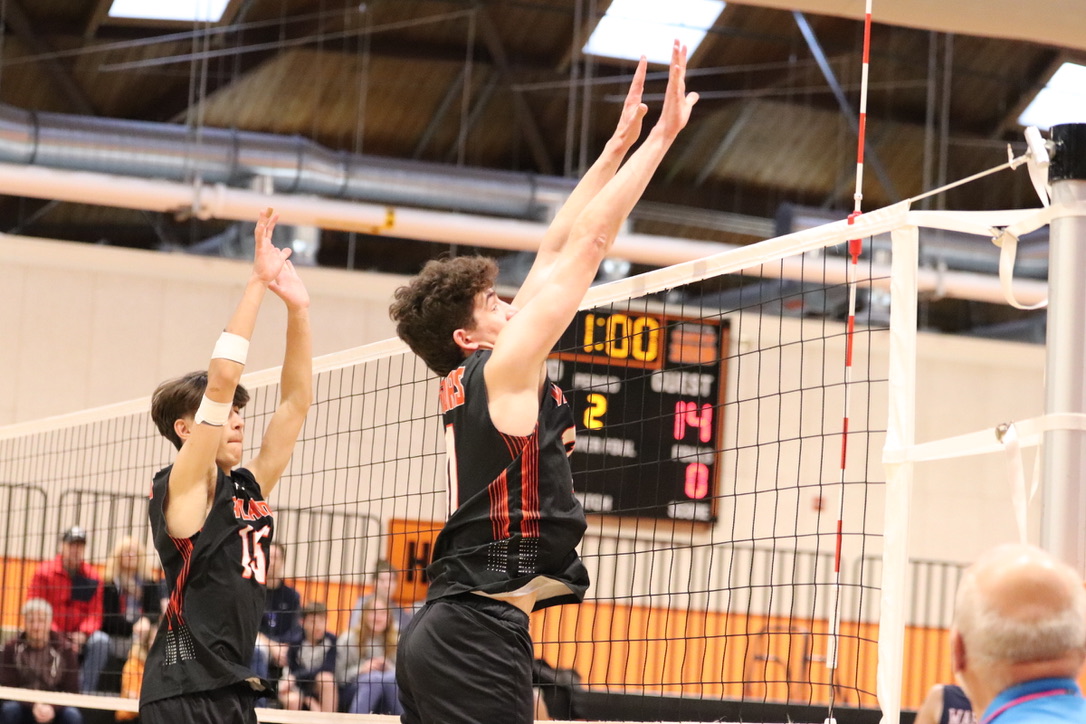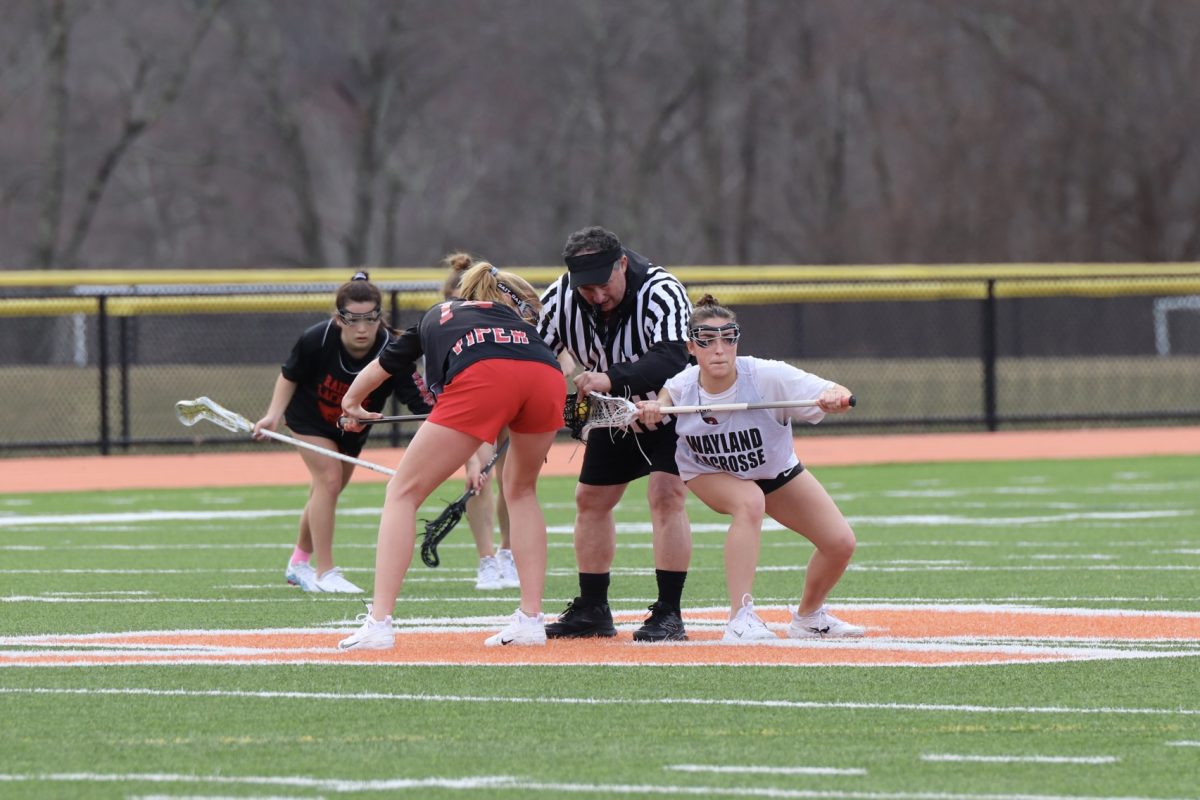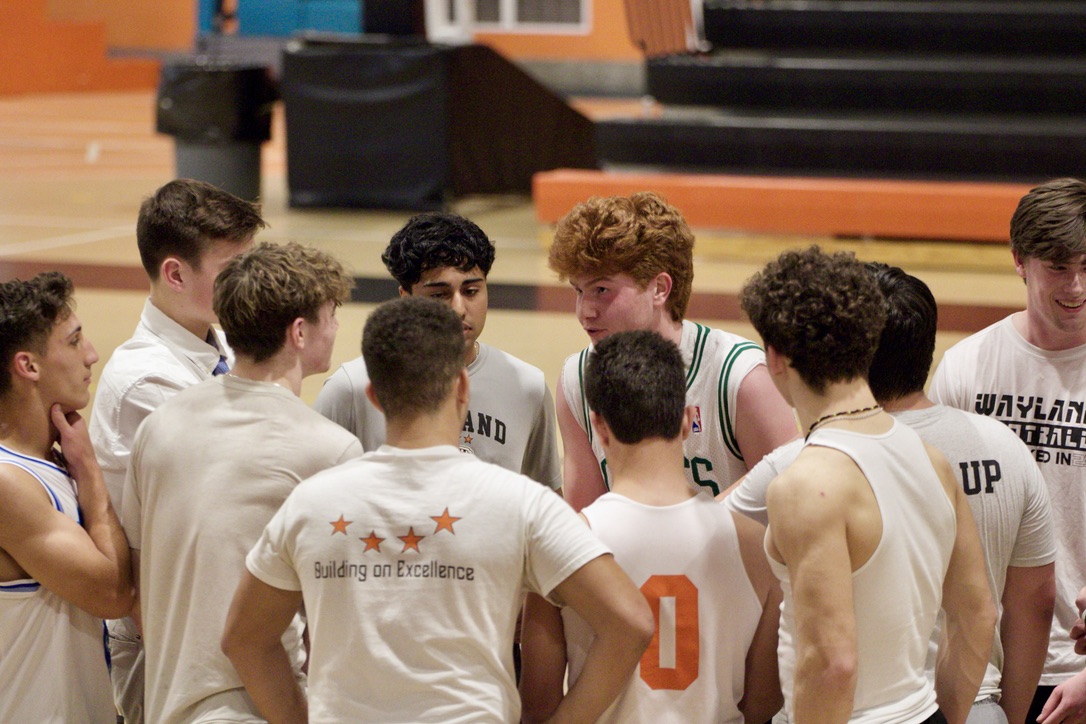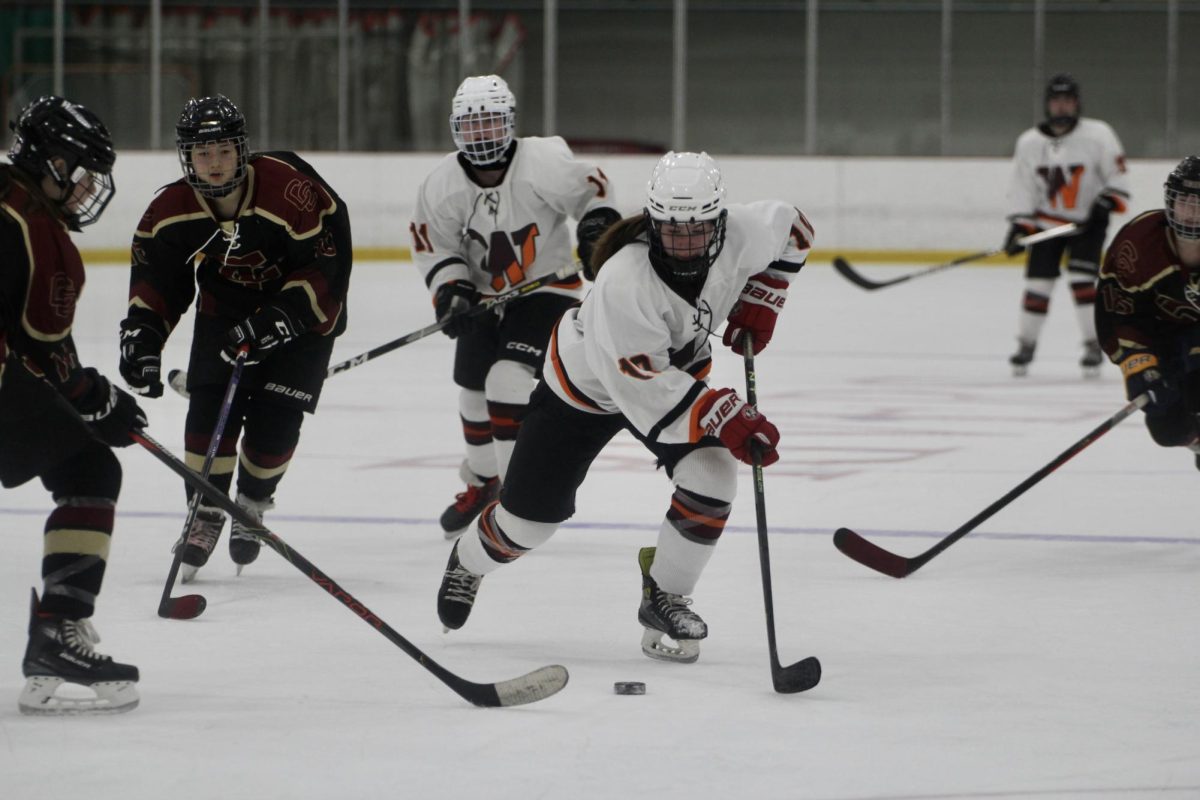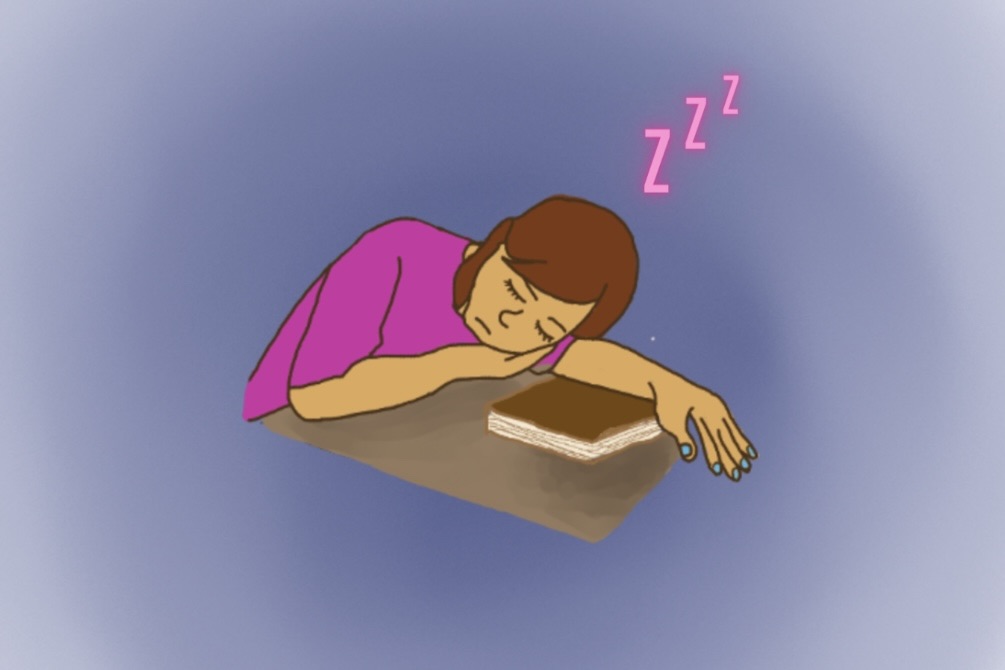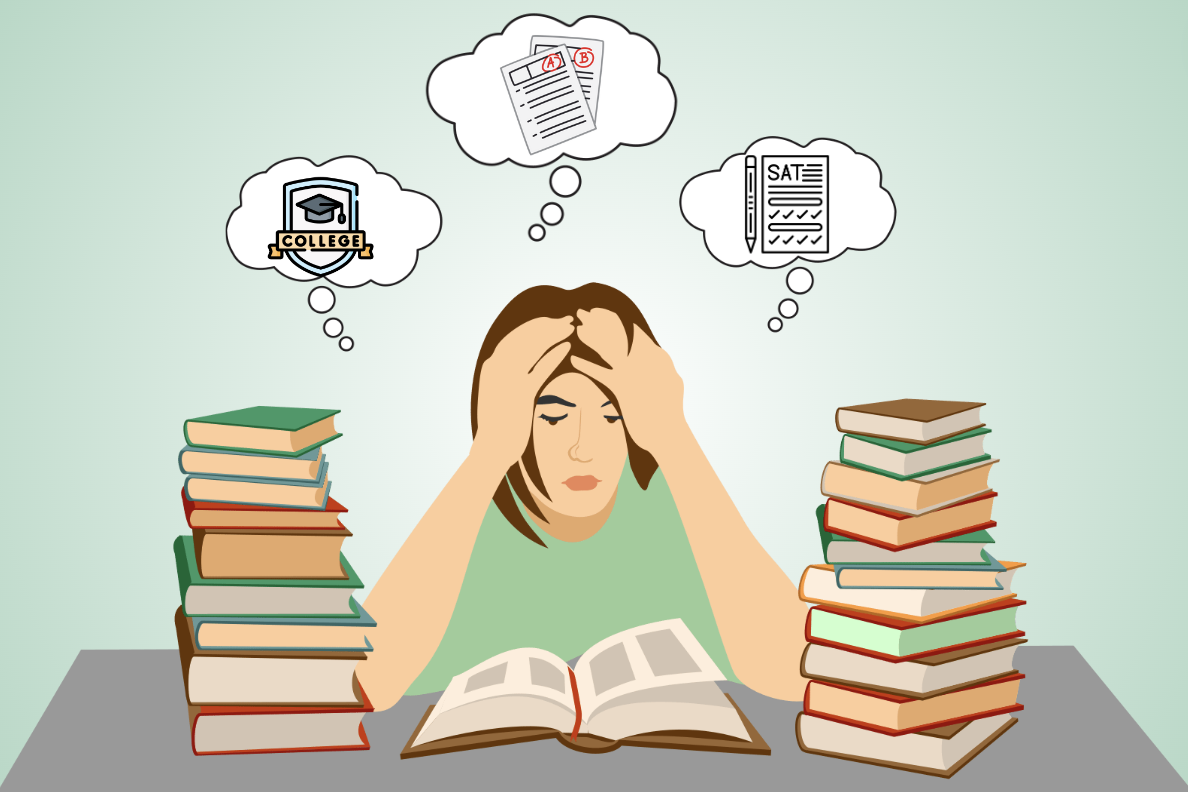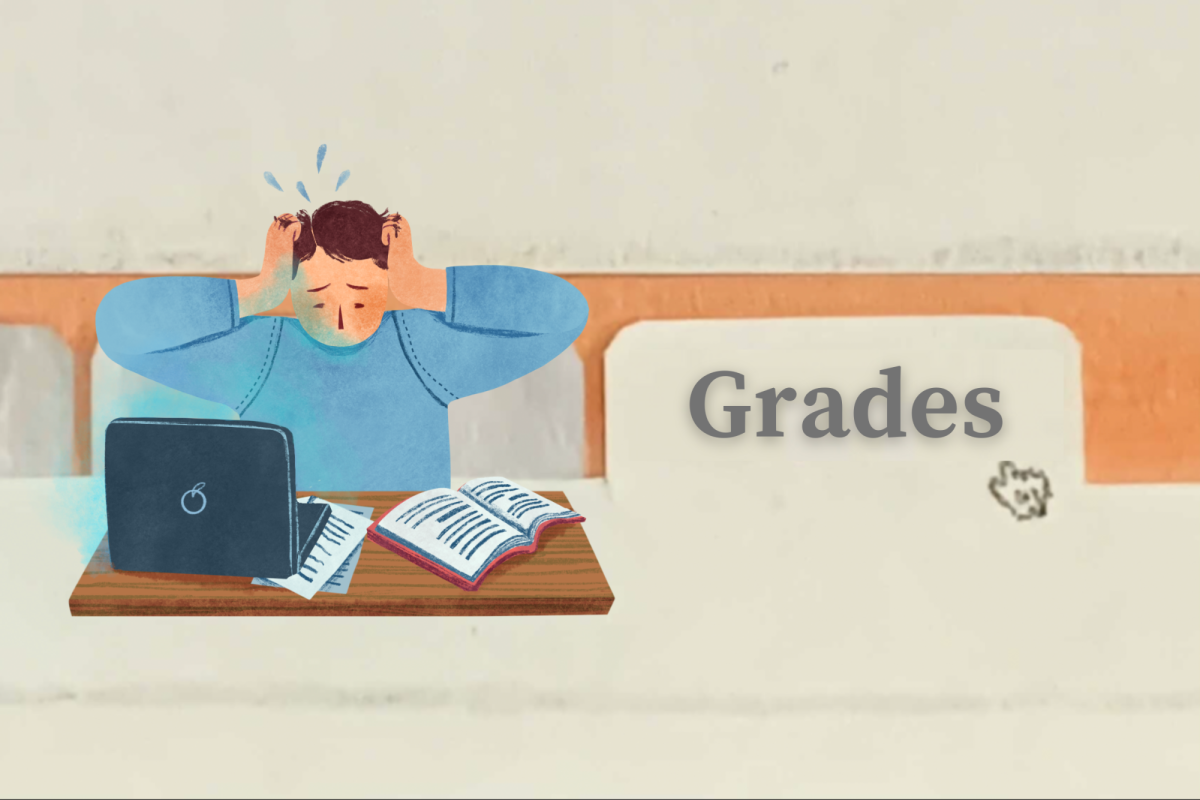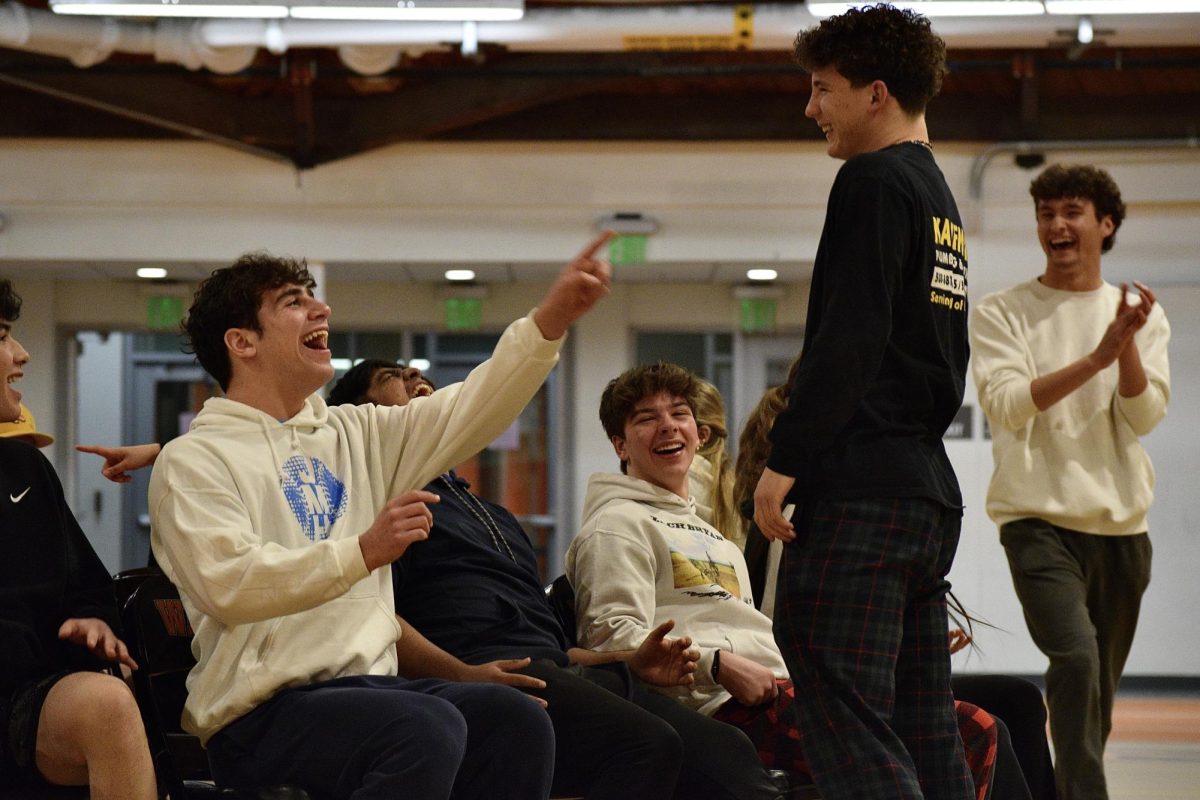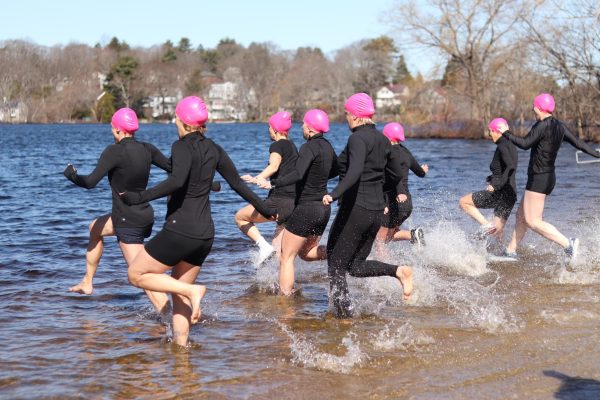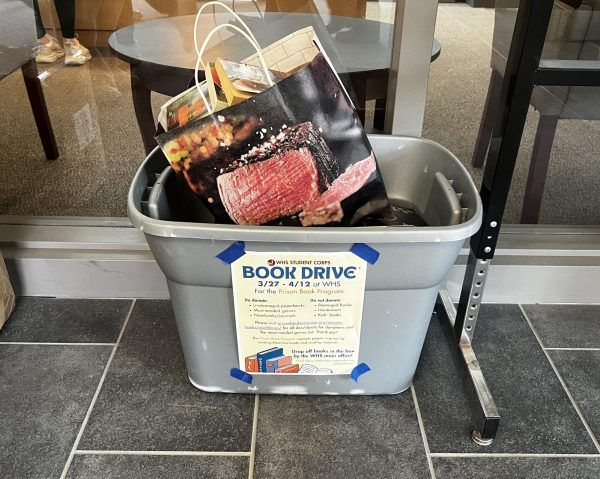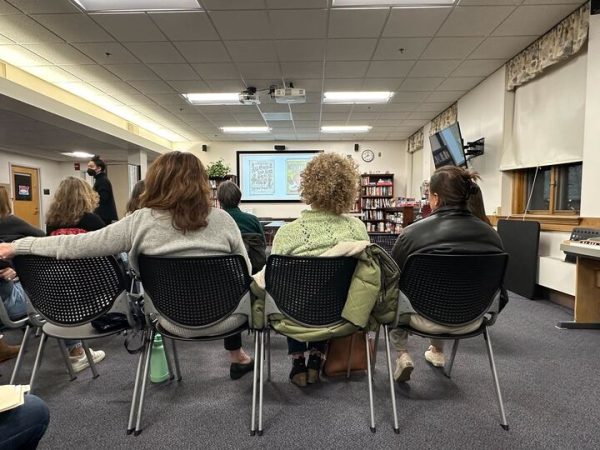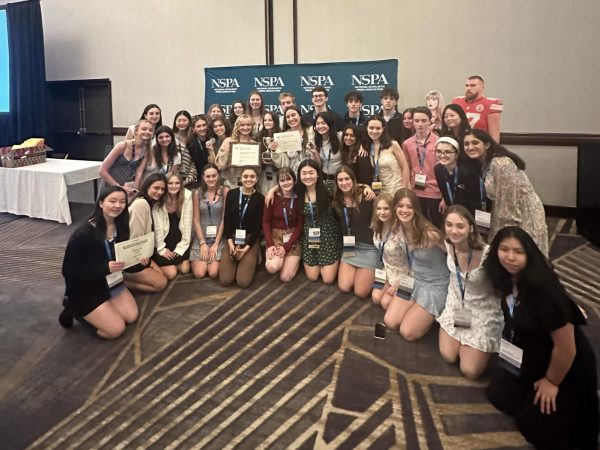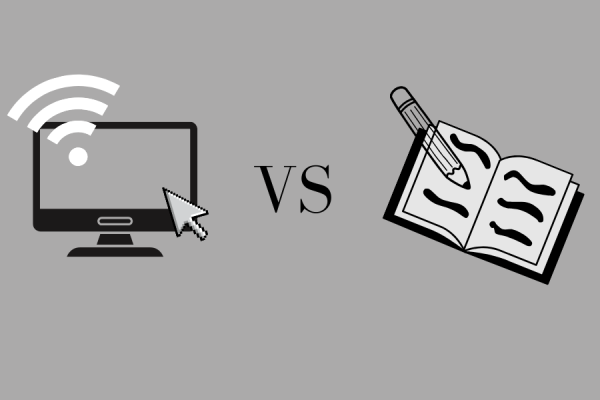The gap between college and honors classes at WHS
Credit: Alyssa Ao
The large gap between college-preparatory classes and honors classes at Wayland High school causes many students to drop down from honors to college classes. “I was hesitant to move down [because] I was already more than halfway through the year when I started to really struggle,” junior Julia DeGrenier said. “I felt like [the class change] would mess up my entire schedule.”
October 28, 2022
For years, Wayland High School teachers and students have noticed the issue of the large academic gap between college-preparatory and honors classes at WHS. While some feel that the academic gap is too large, others feel that the gap has created two separate schools within WHS: one with honors students, the other with college students.
WHS has firm guidelines regarding the switching of classes after the school year has begun. For example, students cannot drop down from an honors class to a college class after the third week of the third quarter, and students cannot move up from a college class after the first week of the second quarter.
“I’ve had physics students move up and drop down after the start of the school year every year, but more so dropping down from honors physics to [college physics],” physics teacher Laura Kreutter said. “I don’t have any kind of problem with that. I think students don’t realize their workload, overall feelings about the year and their stress levels until they’re actually in the situation.”
The difference between honors and college classes is significant, as honors classes move faster, cover more material, go more in-depth on topics and assign up to several hours of homework per night.
“There is a large difference in the pacing and the rigor between honors and college [classes],” Kreutter said. “We move more slowly in college [physics] and we do less sophisticated math. [Honors physics] is faster and [places more] emphasis on mathematical skills. We also require students to be more self-directed. It really is a big difference.”
However, some students who drop down from honors classes to college classes have found that their new college class is too easy for their skill levels. Even so, some do not regret their decision to drop down, as they now have more free time and no longer need to spend as much time completing homework.
“The workload is a lot lighter in college classes,” junior Julia DeGrenier said. “At least for physics [and precalculus], I am able to finish the homework in class. If I don’t, I spend about half an hour, maximum, outside of class [to finish the rest of the homework]. In an honors [science or math] class, I spent multiple hours on homework per night. Also, the tests are way easier and a lot shorter [in college classes]. We’re tested on the most basic parts of the unit, so I think I’ve gotten a 100% on pretty much every test that I’ve taken this year.”
Several teachers and students concluded that the primary reason for the large number of students dropping down from honors to college classes is the learning slump that COVID-19 caused. During the pandemic, students were not only affected academically, but also socially. Teachers noticed a decrease in student confidence, students’ abilities to self-discipline and students’ apprehensiveness towards asking for help.
“I think COVID-19 played a big role in my decision to drop down from Honors Algebra 2 to College Algebra 2 because eighth grade was my [Zoom] learning year, and that’s when we learned algebra,” sophomore Finley Knapp said. “For me, when I went to Honors Algebra 2 this year, it was a lot harder because I didn’t learn all the material in eighth grade.”
Some students also noticed a decrease in their attention spans. These students found the transition from the COVID-19 online learning year to a school year with pre-pandemic rigor to be demanding.
“[COVID-19] is probably what influenced my lack of focus at the start of my junior year,” senior Marcos Whelton said. “During the COVID-19 year, there was just so much less work, and I could get away [with not] caring and trying that much. I would not spend a lot of time at home studying for any of my classes, even when I took [all honors classes] my sophomore year. [When we returned to normal school my junior year], it was a massive step up from sophomore year. That transition was pretty difficult. I remember feeling [the workload was] so much more than what I had been used to, because for the longest time, my grade was mostly [based off of] participation.”
Students choose to change classes for a variety of reasons. Some of these reasons may include feeling overwhelmed, wanting to focus on other subjects, not having enough time or having a failing grade in the class. Still, the decision can be a difficult one to make, and one that involves not only the student, but also teachers, parents and guidance counselors.
“I was definitely hesitant about my decision to drop down in precalculus and physics for a long time because I thought I was going to be able to stay [in the class], and I really wanted to stay,” Whelton said. “I also really liked my teachers. However, I saw that my schedule was all honors and Advanced Placement classes. I realized I was already spending too much time having to study for other classes. My interests weren’t there because I tend to lean more towards history and English classes. I was able to do better in those classes once I dropped down [in my math and science classes].”
Another concern voiced among some teachers is that the gap between college and honors classes is significant because many college classes incorporate both introductory and principal students. As a result, some teachers find it difficult to develop a curriculum that can satisfy all students in the class. Whether teachers choose to teach quickly or slowly, they find that certain groups of students can still be neglected.
Teachers encourage their students to make decisions about switching classes as early as possible in order to reduce the damage done to a student’s schedule and grade. Because schedule changes can add stress to many students’ lives, teachers try to do everything possible to prioritize the needs of the student.
“When students come to me wondering if they should drop down, my response is always, ‘Why are you taking the class?’, ‘Why are you in honors?’, ‘Are you interested?’, ‘How do you feel about the workload?’,” Kreutter said. “After that, [I tell them] they have to make the decision themselves now that they know what the class is like and what the pacing is like. They have to decide if they’re willing to do the work or not. It really depends upon the interest level and the student’s feeling about it. So I don’t really ever give direct advice, I just try to support students with whatever decision they make.”



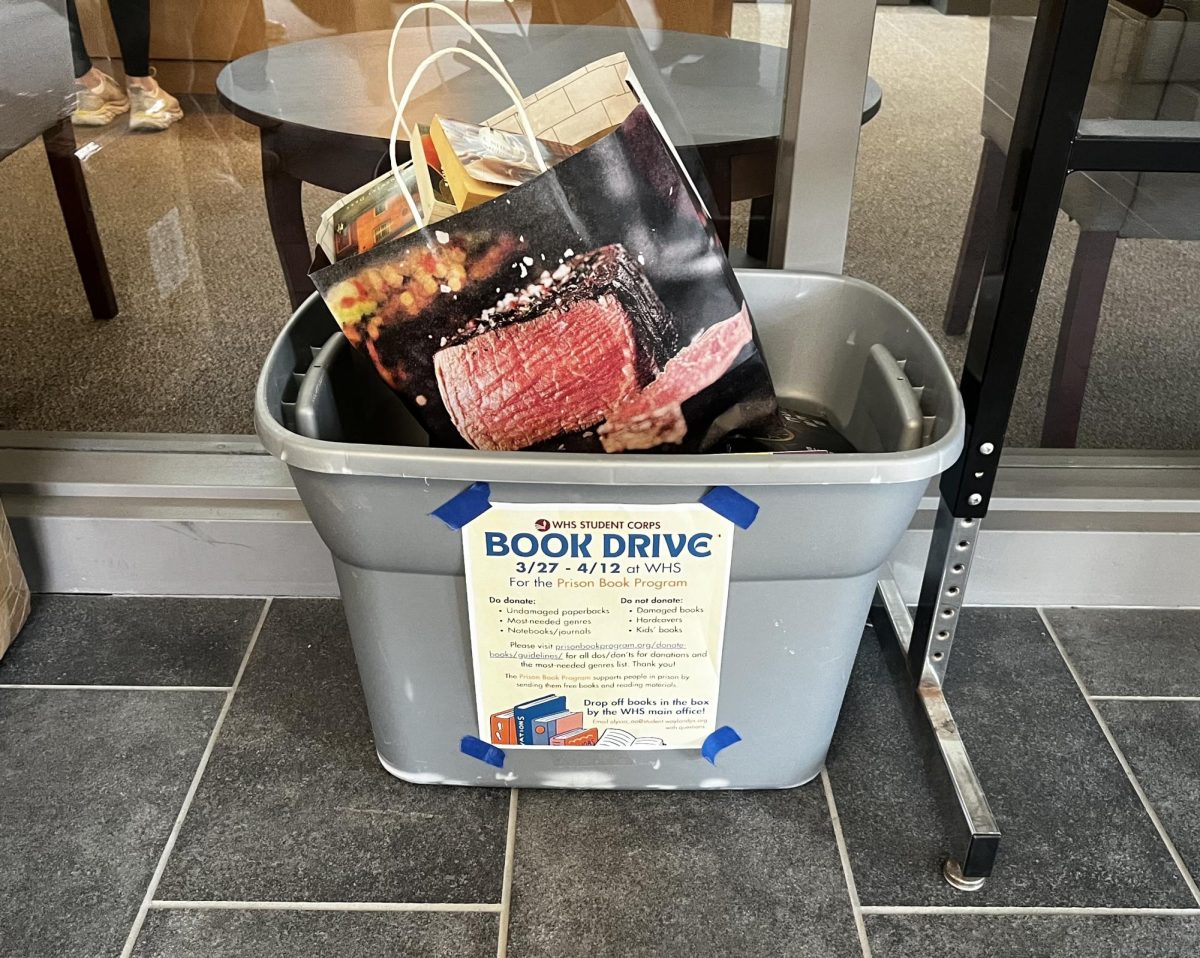

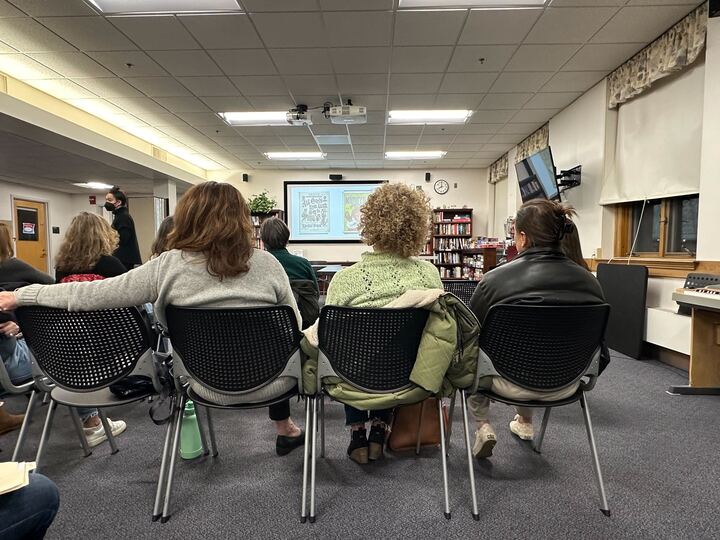





![WSPN’s Annika Martins and Maddie Zajac explore the athletic life of senior Annabelle Zhang through her badminton career. “This [photo] is me and my former partner after we won the 2022 junior nationals mixed doubles category,” Zhang said.](https://waylandstudentpress.com/wp-content/uploads/2024/04/IMG_6629-1200x900.jpg)
